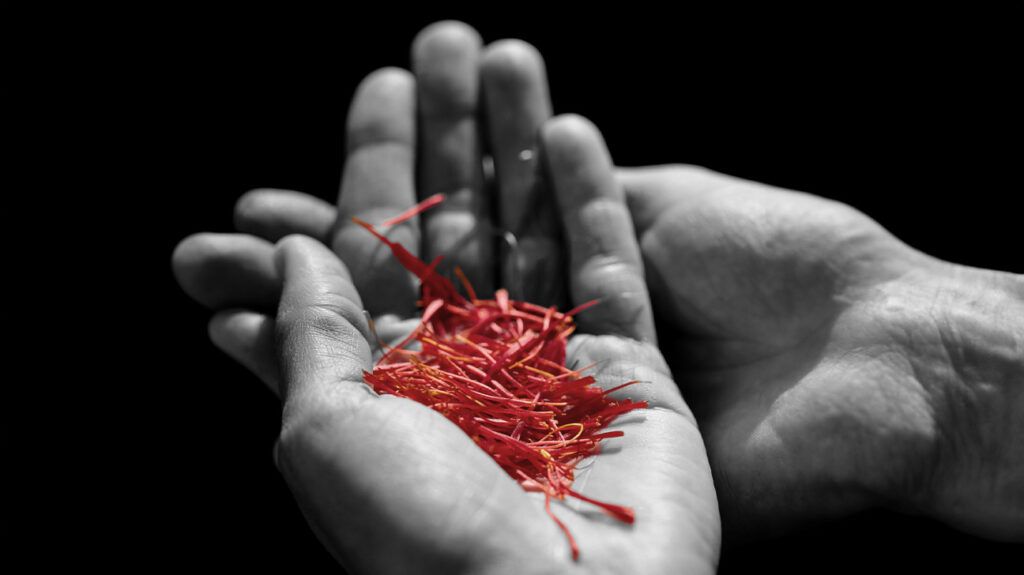
- Although there is currently no cure for IBD, which includes Crohn’s disease and ulcerative colitis, medications and lifestyle changes can help alleviate symptoms.
- Research is currently examining how certain supplements and spices may help with IBD.
- Researchers from Howard University recently presented a study reporting that saffron may help reduce inflammation and improve clinical manifestations in people with ulcerative colitis.
About
IBD refers to two chronic inflammatory conditions that affect the digestive system — Crohn’s disease and ulcerative colitis.
There is currently no cure for IBD.
People with IBD may also be lacking in certain vitamins and minerals and their doctors may prescribe supplementation.
There is also research currently looking at whether some other supplements and spices — including
Now, researchers from Howard University in Washington, DC, are adding to this list with a recent presentation at the annual Crohn’s & Colitis Congress reporting that the herb saffron may help reduce inflammation and improve clinical manifestations in people with ulcerative colitis.
Saffron is a spice derived from the Crocus sativus flower. The stigmas of the flower — which look like threads — are harvested and dried.
The majority of saffron is grown in Iran, and it can also be found in India, Spain, and Afghanistan.
Saffron is known as the
Since as far back as 1,627 Before the Common Era (BCE), saffron has been used not only in food but for
Previous research shows saffron has high levels of
Scientists are currently looking at saffron for the treatment of a variety of health conditions, including:
For this study, researchers recruited 30 participants with ulcerative colitis at Yazd University in Iran.
Participants either received low or high doses of saffron or a placebo two times a day for 8 weeks.
At the start of the study, scientists recorded participants’ scores on the
After eight weeks, the researchers found that people who took high doses of saffron had significant improvement in their HDRS and Partial Mayo scores, as well as their fecal calprotectin and CRP inflammatory biomarkers.
The low-dose saffron group also showed improvement in their HDRS scores.
To help further validate these results, researchers recruited three people with ulcerative colitis at Howard University who received 50 milligrams (mg) of saffron twice a day for eight weeks. These participants then underwent a
Scientists reported that during the washout period, participants’ fecal calprotectin increased. After the second saffron cycle, the fecal calprotectin once again was reduced, which the researchers state further validates a causal relationship between saffron ingestions and gastrointestinal improvements in IBD.
Taking saffron also led to a decrease in
According to Monique Richard, a registered dietitian nutritionist and owner of Nutrition-In-Sight in Johnson City, TN, who was not involved in this study,
“The crocins are carotenoids, responsible for saffron’s yellow-red color, just like the carotenoids responsible for the yellow, orange, and red in carrots, beets, [and] peppers. The compound crocin goes through a chemical reaction and transformation to form what is called,
crocetin , most responsible for the pharmacological activities and medicinal properties of saffron.”
— Monique Richard
“Some of these values may include being protective — cardioprotective, hepatoprotective, neuroprotective — [as well as] the ‘anti’s — antidepressant, antiviral, anticancer, antidiabetic [effects] — and [may] even possibly [be] linked to enhancing memory,” she explained.
Richard said crocetin seems to act a little like an adaptogen in that it can be used in different mechanisms.
“For example, inhibiting inflammation, stimulating cell death in cancer cells, or protecting cells from
Saffron is not the only medicinal herb currently under evaluation as a potential treatment for ulcerative colitis.
Researchers from Kyushu University are also presenting a study at this year’s Crohn’s & Colitis Congress on the use of indigo naturalis in the treatment of ulcerative colitis.
Indigo naturalis has been used for decades as part of traditional Chinese medicine.
Over the past few years, there has been much research conducted on the use of indigo naturalis for the
In this current study, which has not yet been published or peer-reviewed, scientists said they had found indigo naturalis to be very effective in maintaining remission in people with ulcerative colitis.
MNT also spoke with Dr. Rudolph Bedford, a board-certified gastroenterologist at Providence Saint John’s Health Center in Santa Monica, CA, about this study.
Dr. Bedford said he found the study to be interesting and innovative as doctors are always looking for supplements or other benign products that may help and treat people with ulcerative colitis.
“If you can find something that has minimal or no side effects whatsoever, then that obviously would be the optimal thing to do,” he continued. “And things like saffron [have] antioxidative effects, therefore mitigating any inflammatory response from the disease itself.”
Moving forward, Dr. Bedford said he would like to see this research conducted in a study with a larger participant population that is further categorized with mild, moderate, and severe ulcerative colitis.
He also said there is no doubt that researchers should also examine the use of saffron as a potential treatment for Crohn’s disease.
“I can just imagine saffron and products like it being used in this disease,” Dr. Bedford added. “As a matter of fact, after reading this study, it may be something I will suggest to some of my patients.”
Should I use saffron if I have IBD?“Treating IBD and its symptoms typically requires a multi-faceted approach addressing diet, gut microflora, targeted supplementation, [and] hydration, in addition to possible digestive aids, stress management, and conventional medicine. Saffron may be appropriate for some individuals but should be assessed [on] a per-case basis and may not be appropriate for everyone.”
— Monique Richard